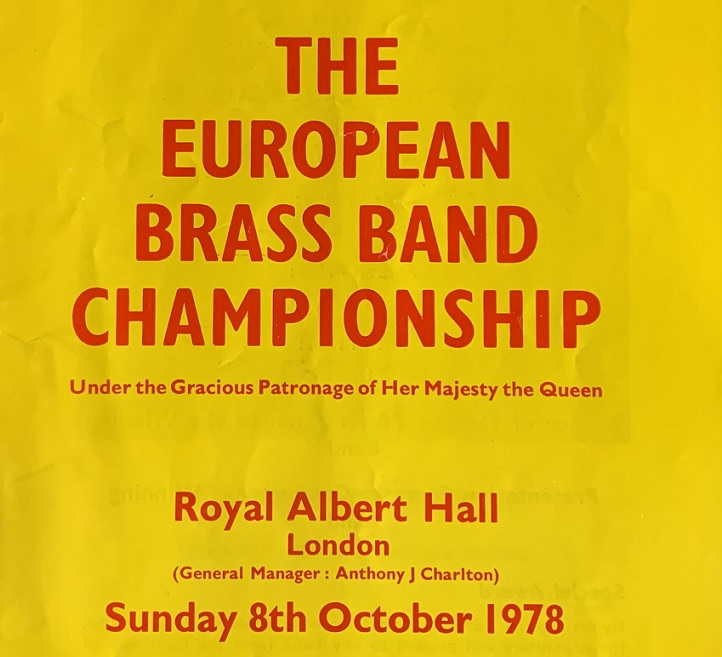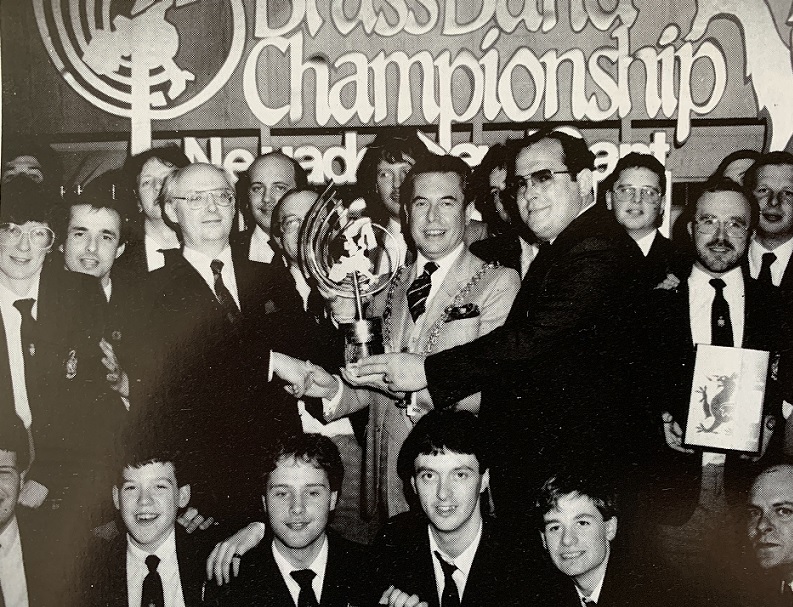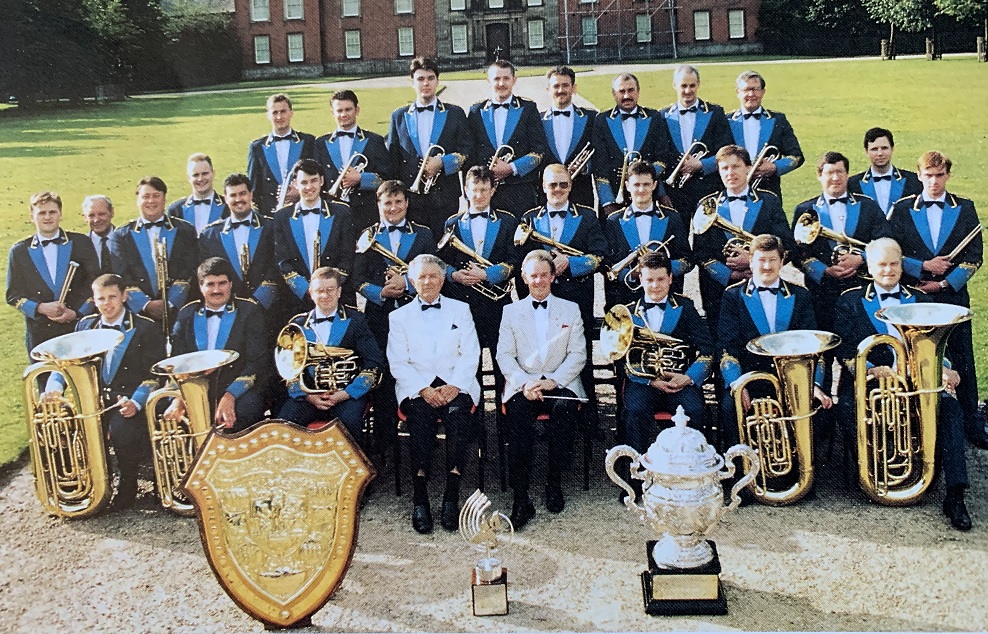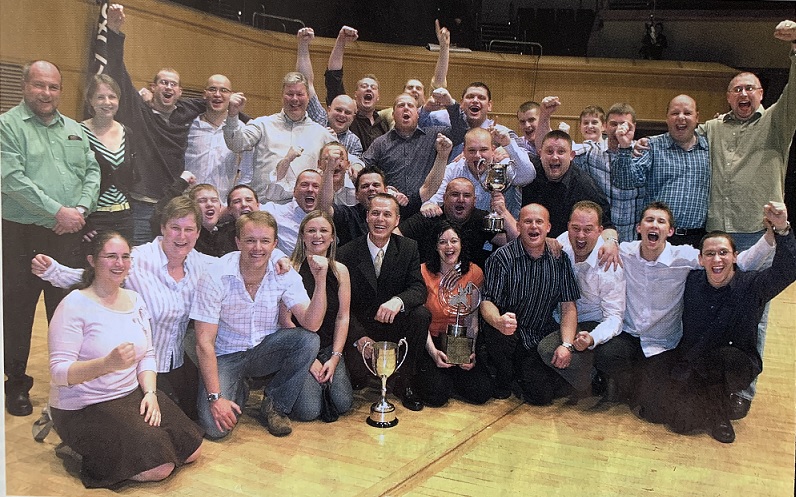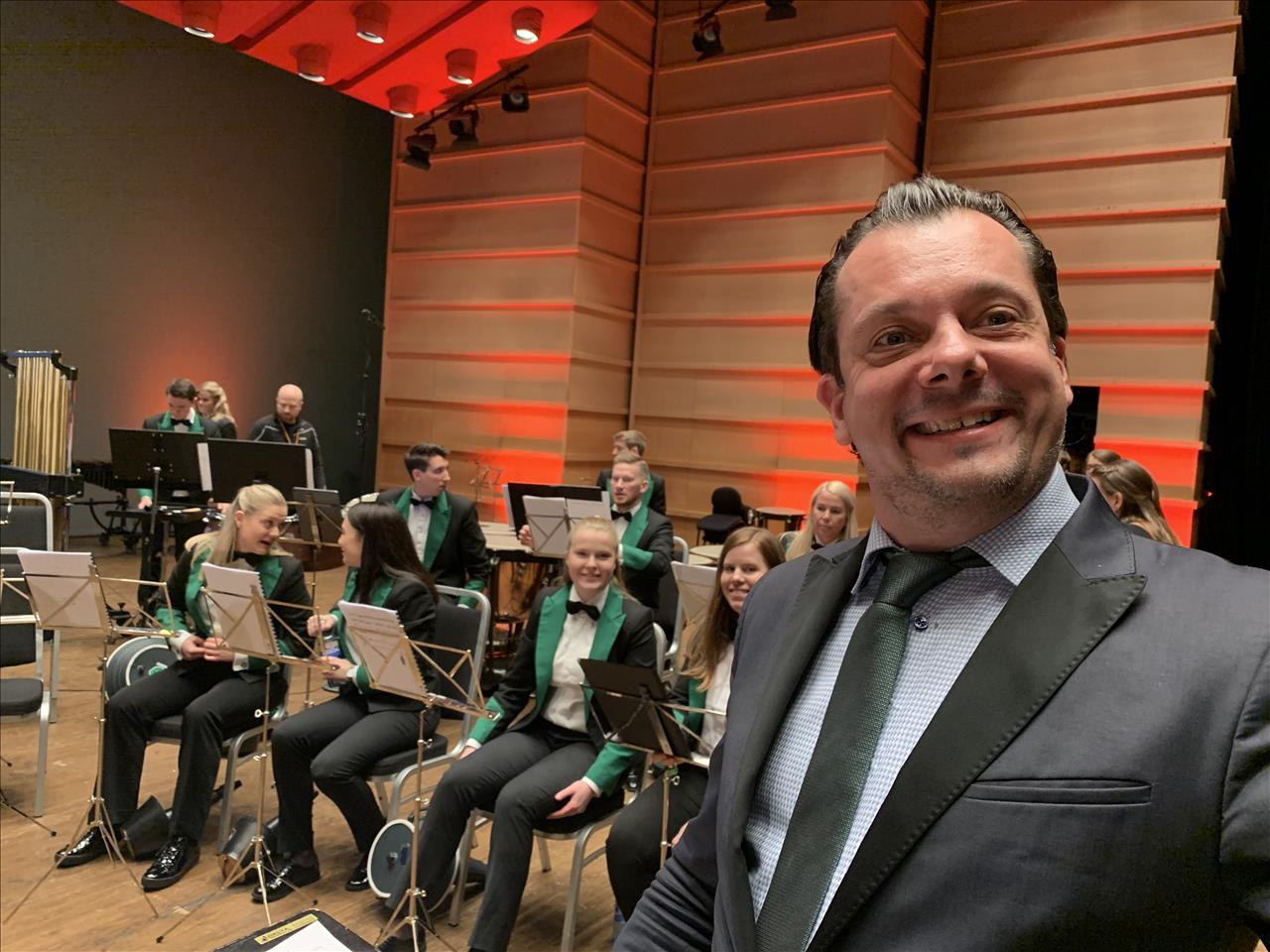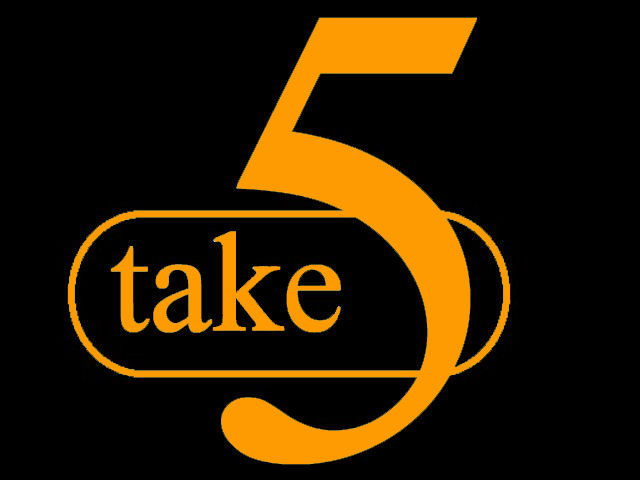
This weekend would have seen a new Champion Band of Europe crowned in Palanaga.
It was not to be - the worldwide Coronavirus pandemic causing brass band contesting around the globe, let alone in Lithuania, to be cancelled. We will now have to wait to hear Philip Sparke’s latest major test-piece performed, as well as some of the own- choice selections that were to be played.
Still, it gives us the opportunity to trawl through the memory banks to pick out five of the most significant own-choice performances given at the event since 1978.
Significant
We have deliberately opted for them being significant rather than merely memorable or the best (there have arguably been finer ones), as those are much more subjective measures of personal preference. Not all of our selections even topped the own-choice discipline at the contest.
We have deliberately opted for them being significant rather than merely memorable or the best (there have arguably been finer ones), as those are much more subjective measures of personal preference.
However, what made them stand out was how they were the catalyst for change – both in thinking and approach and how they have shaped the way in which bands and conductors now try to win the contest.
We’ve also placed them in chronological order – as each in their way each was a product of what came before...
1. Black Dyke - Connotations (Edward Gregson)
Conductor: Peter Parkes
1978 European Championship: London
The first European Championship was not so much a brass band competition, more a political coronation.
Black Dyke won by 10 points. The authenticity of the victory was without question, but the ambiguity was.
Boosey wanted the event to be a celebration of European integration (the UK had joined the Common Market in 1975) and so asked the competing bands to play an own-choice work that reflected their nation’s place in the new era of closer cooperation.
It led to some distinctly odd choices. The Welsh took it literally and played ‘Owain Glyndwr’, whilst the two Norwegians (whose first national championship was still a year away) opted for a sense of wishful thinking with ‘Norwegian Fantasy’ and misplaced geographical adventure with ‘Down Under’ - perhaps thinking Australia was part of the European Union.
Meanwhile, the Danes and the Belgian’s completely lost their geographical bearings – playing pieces entitled, ‘Suite Artica’ and ‘Canadian Impressions’. It was a well intentioned mess.
Meanwhile, the Danes and the Belgian’s completely lost their geographical bearings – playing pieces entitled, ‘Suite Artica’ and ‘Canadian Impressions’. It was a well intentioned mess.
However, the English (and the Scots for that matter), stuck two fingers up to the request.
Grimethorpe didn’t name the piece they were to play and simply reprised ‘Checkmate’ played the previous day at the National Championships, whilst Black Dyke just binned their choice of ‘Variations on a Ninth’ (the choices were printed next to the band’s names in the programmes) and chose ‘Connotations’ instead.
After that the Boosey & Hawkes organiser’s dropped the idea of trying to make music a tool of closer European integration and left the band’s get on with it themselves. The benchmark had been set.
2. Desford Colliery Dowty – Daphnis & Chloe (Ravel arr. Howard Snell)
Conductor: Howard Snell
1986 European Championship: Cardiff
This was a musical revolution played out on a stage before an audience packed into St David’s Hall in Cardiff.
It made everything that went before it redundant and everything that came after it for almost the next 20 years pale in comparison.
There were rumours someone was going to try something new - yet nobody really had an inkling of who, and how different it was going to be (this was the pre-social media era).
Few in the audience would have even been familiar the music (the programme just gave the title not the name of the composer or arranger), even fewer still that it could even be attempted by a brass band.
Yet Howard Snell and Desford did just that.
Few in the audience would have even been familiar the music (the programme just gave the title not the name of the composer or arranger), even fewer still that it could even be attempted by a brass band.
Black Dyke had already given a superb performance of ‘Contest Music’ off the number 1 draw (one that was awarded 99 points), yet what followed immediately them left the banding world in a state of shock.
It was music making of colour and especially texture that no-one had heard before.
Incredibly it finished two points behind Dyke, although that was a pyrrhic victory for the Queensbury Band. There were even complaints for some quarters that somehow Desford had ‘cheated’.
In truth though Howard Snell had completely and utterly outwitted everyone – and had ushered in a new era of European brass band contesting in the process.
3. Williams Fairey - Masquerade (Philip Wilby)
Conductor: Major Peter Parkes
1994 European Championship: Montreux
If Howard Snell ushered in a new musical era in 1986, then Major Peter Parkes closed the door on his own in 1994 in the most memorable way with this, the last of his eight title wins.
It came seven years after his last with Black Dyke, and in the intervening period the contest had become something of a duopoly between Howard Snell and David King.
Fairey was a superb band at the time, but in an intense Indian Summer of brilliance inspired by ‘The Major’, between the British Open in 1993 and the European in May 1994 they were unbeatable.
Fairey was a superb band at the time, but in an intense Indian Summer of brilliance inspired by ‘The Major’, between the British Open in 1993 and the European in May 1994 they were unbeatable.
At the end of the set-work they were in third. It mattered little, as their performance of what many people thought was still an almost ‘unplayable’ ‘Masquerade’ (on which they won the 1993 Open) they were stupendous - awarded 99 points to deny Howard Snell a fifth victory.
Parkes conducted like a general leading his troops into battle – the years rolling back in a swashbuckling display of brilliance.
It was to be his last ‘Major’ success, although other notable victories still followed.
The following year he came runner-up (on equal points with his old band at Black Dyke) and made four further appearances at the event – but the crown was never his to wear again.
4. Yorkshire Building Society - Music of the Spheres (Philip Sparke)
Conductor: Prof David King
2004 European Championship: Glasgow
The man who replaced Peter Parkes at Black Dyke and had created a band very much in his own musical image at Yorkshire Building Society, had nine European victories to his name, the last five in a row by the time the contest came to Glasgow.
In 2003 they had retained the title by the narrowest of margins from a resurgent new challenger in Buy As You View Cory - a band that had even greater financial muscle to cherry-pick the finest players around. Many felt that they were about to become the new Kings of Europe.
They didn’t bet on the Australian rewriting the rules of the game though.
They didn’t bet on the Australian rewriting the rules of the game though.
This was the era of the test-piece leviathan - huge major championship works that only the very best could master; ‘Revelation’, ‘... Dove Descending’ and ‘Harrison’s Dream’ were played by seven of the 11 contenders.
Prof King ignored the prevailing orthodoxy and got Philip Sparke to write a test-piece that was a showcase for the talents of his star performers and the perfect vehicle for his own intoxicating flamboyance. ‘Music of the Spheres’ was literally from a different dimension.
YBS won the contest by six points.
From then on any band with a serious ambition to claim the title started having a ‘blockbuster’ piece written specially for them for the event - and it hasn’t stopped since.
5. Manger Musikklag - Audivi Media Nocte (Oliver Waespi)
Conductor: Peter Sebastian Szilvay
2012 European Championship: Rotterdam
Today we take a huge dollop of showmanship from MDs for granted - especially their little personal idiosyncrasies, conscious and sub-conscious, when conducting on stage.
However, at the De Doelen Hall in Rotterdam in 2012 one conductor took it to a new level with a display of such audacity that it sent a shock of electricity through the air that it could have reanimated the body of Dr Frankenstein’s monster. 2242 people that day were left twitching in bewilderment.
Step forth Peter Sebastian Szilvay.
As we wrote at the time, Cory had already heightened the senses with a ferocious ‘Spiriti’ packed with so much dynamite it almost shattered your spine, only for Black Dyke to top it with a ‘Revelation’ of such single minded purpose that even the choreographed stage bows seemed a part of the performance experience.
These were mere amuse-bouche tasters though.
With many in the audience still standing and chatting as Frank Renton finished his introduction about Oliver Waespi’s piece, the MD ran onto the stage and smashed them in the face like a heavyweight boxer delivering an uppercut to the jaw of a punch drunk opponent.
Nobody saw it coming – and it literally took minutes for people to recover their senses and pick themselves up from the canvas as Manger hit the hyperdrive button – the MD wearing a crazed smile of delight on his face as they pummelled through Oliver Waespi’s work in totally uninhibited fashion.
With many in the audience still standing and chatting as Frank Renton finished his introduction about Oliver Waespi’s piece, the MD ran onto the stage and smashed them in the face like a heavyweight boxer delivering an uppercut to the jaw of a punch drunk opponent.
It was an incredible display of ballsy, P.T. Barnumesque hutzpah – totally bonkers, yet backed by playing right out of the very top drawer by his band. Bars before the end the audience was on its feet – it was like being ringside at the ’Rumble in the Jungle’, with Szilvay as Muhammad Ali.
That it came ninth mattered little in the greater scheme of things – for the memory will forever be seared into the mind.
And all the manufactured, practiced in the mirror peacocking you get nowadays from MDs is nothing more than the equivalent of a pub singer tribute act in comparison.



